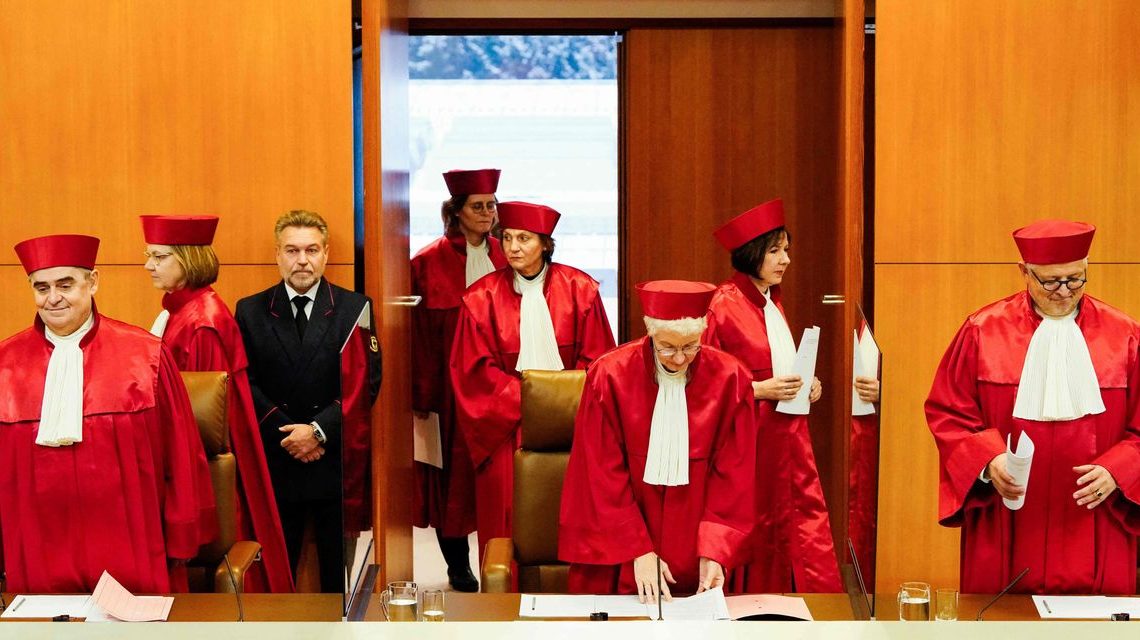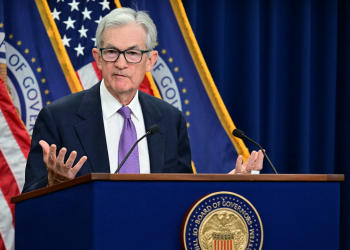Germany’s Federal Constitutional Court is expected on Wednesday to deliver a decision on fiscal rules that could have big implications for the government budget in Europe’s biggest economy.
The landmark ruling relates to Germany’s 2021 second supplementary budget, the spending of funds initially earmarked for COVID-related spending and the use of special purpose vehicles.
It’s a €400 billion court decision, according to Christian Schulz, deputy chief European economist at Citi. That’s a lot. So, utilizing his handy note on the issue, here’s an explainer.
What’s happening, where and when. The Federal Constitutional Court, or Bundesverfassungsgericht, is the supreme constitutional court for the Federal Republic of Germany, based in the southwestern city of Karlsruhe.
On Wednesday November 15 at 10 a.m. central European time, 4 a.m. Eastern, it’s red-robed judges should reveal their ruling on whether the German government’s budget in 2021 was legal or not.
So, what’s the big deal with that 2021 budget. A week after current German Chancellor Olaf Scholz took power on December 8th 2021, his government passed a Second Supplementary Budget.
The traffic light coalition, as the new government was known, comprised the Social Democrats, Free Democrats and a Green bloc, inherited a nation ravaged by the COVID pandemic and immediately was looking at ways to boost the economy.
The new administration would take “swift and decisive action” to tackle the major challenges, said Finance Minister Christian Lindner.
And so, as the need for direct COVID spending had waned, they took €60 billion ($64 billion) of unused borrowing for pandemic-related activities in the earlier 2021 budget and moved it into the Energy and Climate Fund, which later became the Climate and Transition Fund (KTF in the German acronym).
The money would be used “for investments in the future, climate action and projects to transform the German economy,” said Lindner.
Now, the opposition was not happy about emergency COVID funds being used for what they perceived as the new left of center government’s pet projects.
But there was more. The new government also changed the accounting principal by which borrowing by special purpose vehicles (SPVs) counted against the budget deficit when the borrowing took place.
As Citi’s Schulz explains: “Now, the announcement of the borrowing allowance already counts against the budget deficit entirely. As a result, the €60 billion transfer counted only as a deficit in 2021, not in the years 2023 and 2024 when most of the spending was supposed to occur.”
Why did judges get involved, what have they decided so far, and what issues are they examining. The conservative opposition challenged the budget in the constitutional court, claiming in essence that it was designed to compromise fiscal rules, particularly borrowing limits.
The court in November 2022 rejected an injunction on the secondary budget, but said it would look at a number of issues.
These included; what defines an economic emergency and do they justify exceeding the borrowing limit; how much can a government deviate from the fiscal rule; can the government use SPVs in the type of way it is trying to; and can it use an emergency year when the debt rule is suspended to inflate borrowing but then undertake that spending later when the emergency has subsided and the debt rule reinstated.
What if the court rules against the government. Well, this is why economists will be paying attention. The court already warned in its preliminary November 2022 decision that if it does so then any of the €60 billion of borrowing allowances transferred to the KTF that had not already been used would be not be available.
Citi’s Schulz thinks much of this has been used, but still €22.7 billion would have to be recovered. “The main affected expenditure would be renewable energy subsidy, railroad investment, semiconductor subsidies and the hydrogen industry. In addition, support for the most energy-intensive industries is funded by the KTF — and was just extended by the government in a break-through deal for the 2024 budget,” he notes.
But the more important court decisions relate to protocols on SPVs and economic emergencies, and how they apply to the fiscal rules. If the judges do decide that transfers from one fiscal term to the next are illegal then, for example, a large part of the €200 billion for the Economic Stabilization Fund (WSF) may be void, reckons Schulz.
Clearly, this would likely compromise the German government’s spending plans.
And if the court rules in favor of the government. If the court rules there are no restrictions on the budget then up to €400 billion, or 10% of GDP in borrowing allowances could be flexibly shifted between annual budgets.
“With the government current planning a 2.0% budget deficit under EU rules for 2024 and 1.5% in 2025, it could send an extra €60bn until the next election,” says Schulz.
And the market response. “Any ruling that would allow the government to deploy the remaining borrowing allowances from the ESFs would create pressure to use it to support the economy. We could see more bond supply, stronger growth and presumably higher inflation expectations,” Schulz told MarketWatch.
Read the full article here









